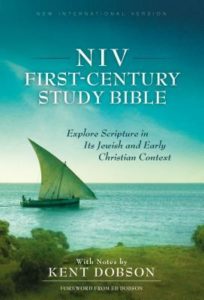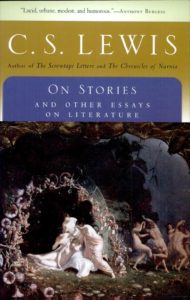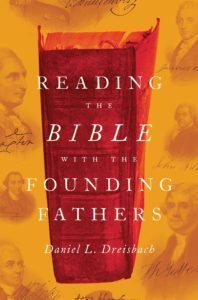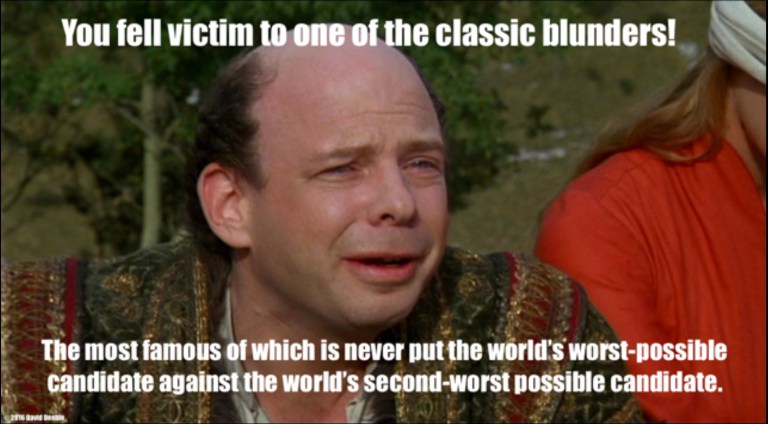Last year’s political season was probably the most divisive in modern American history. The nature of the presidential race was such that I felt compelled to concentrate on it in this blog. However, I always sought to provide thoughts on other topics as well. After all, this blog is not about politics and government only; it’s about life overall.
I have a daily routine of online sites I check for current events and commentary, but I don’t limit my reading to those. That would be unbalanced. I am a voracious reader. It’s not just my profession as a history professor that mandates it; I thrive on reading.
 My foundational reading for life is always going to be Scripture. I just completed reading the Bible through again. Whenever I do that, I use a different version to keep the message fresh.
My foundational reading for life is always going to be Scripture. I just completed reading the Bible through again. Whenever I do that, I use a different version to keep the message fresh.
My newest Bible-reading project will be long-term, as I’ve begun to delve into a study Bible that will keep me occupied for at least a couple of years. I’m not going to rush through it. I’ll take my time while I meditate not only on the verses themselves but the commentary within.
As a corollary to Scripture reading, I also have a daily e-mail from Christian History that not only offers a short devotional but also information about various people and movements in the history of the church.
A lot of my reading does have to do with the courses I teach, as I want to stay current with scholarship in my field. Yet that type of reading is not a duty; rather, it’s a joy.
 For instance, I am teaching my C. S. Lewis course this spring. In my reading of a book about Lewis over Christmas break, I realized I hadn’t yet read some of his essays on literature. So I got a collection of those and found some I have now incorporated into the course.
For instance, I am teaching my C. S. Lewis course this spring. In my reading of a book about Lewis over Christmas break, I realized I hadn’t yet read some of his essays on literature. So I got a collection of those and found some I have now incorporated into the course.
Reading Lewis is one of my favorite things, as most of you probably know, since I published a book about him a few months ago. I find endless fascination in his thoughts and in the way he expresses them. He helps keep me balanced.
 I’m reading other books now as well (I usually have three or four going at the same time). For my American Revolution course, which I will probably teach again in the fall, I’m previewing a book with an intriguing title: Reading the Bible with the Founding Fathers. The author is a man I know personally, Daniel Dreisbach, who is an excellent scholar. Reading a book like that is a perfect combination of faith and history.
I’m reading other books now as well (I usually have three or four going at the same time). For my American Revolution course, which I will probably teach again in the fall, I’m previewing a book with an intriguing title: Reading the Bible with the Founding Fathers. The author is a man I know personally, Daniel Dreisbach, who is an excellent scholar. Reading a book like that is a perfect combination of faith and history.
 A course I’ve not yet taught, American history from 1877 to 1917, is another one I may teach in the fall, so I’m focusing right now on a key period in that history, trying to find just the right book to fill in the gap.
A course I’ve not yet taught, American history from 1877 to 1917, is another one I may teach in the fall, so I’m focusing right now on a key period in that history, trying to find just the right book to fill in the gap.
I’ve found a very readable book on the pivotal 1912 election that may be the one. It’s an interesting character study of the four candidates in that key campaign: Woodrow Wilson, Theodore Roosevelt, William Howard Taft, and Eugene Debs. I can say I’ve learned quite a bit; it has deepened my knowledge of the era, which is something I always seek to do with any historical period.
I also read fiction, mostly from evangelical authors who know how to tell a good story. Some of my staples in that area are Ted Dekker, Stephen Lawhead, and Joel Rosenberg, but I broaden my search all the time, wanting to find others who know how to combine fine storytelling with the faith.
I’m also working my way slowly through Paradise Lost, which is going to take a while, to be sure. Catching up on some of the classics that I’ve never read is another goal.
So, you can see I’m not just narrowly focused on politics. My life is so much more than just a matter of who won the last election. In fact, with an election like the one that has just occurred, I am truly grateful that life is bigger than that.
Memes created from one of my favorite movies, The Princess Bride, can sometimes capture how I feel:

I hope we can all keep our sense of humor in times like these. Faith in God and a sense of humor should go together to remind us that current events are just that—current, not eternal.
That reminds me of another of my favorite Scripture passages, found in 2 Corinthians 4:16-18:
Therefore we do not lost heart, but though our outer man is decaying, yet our inner man is being renewed day by day.
For momentary, light affliction is producing for us an eternal weight of glory far beyond all comparison, while we look not at the things which are seen, but at the things which are not seen.
For the things which are seen are temporal, but the things which are not seen are eternal.
May our focus always be on the eternal.
